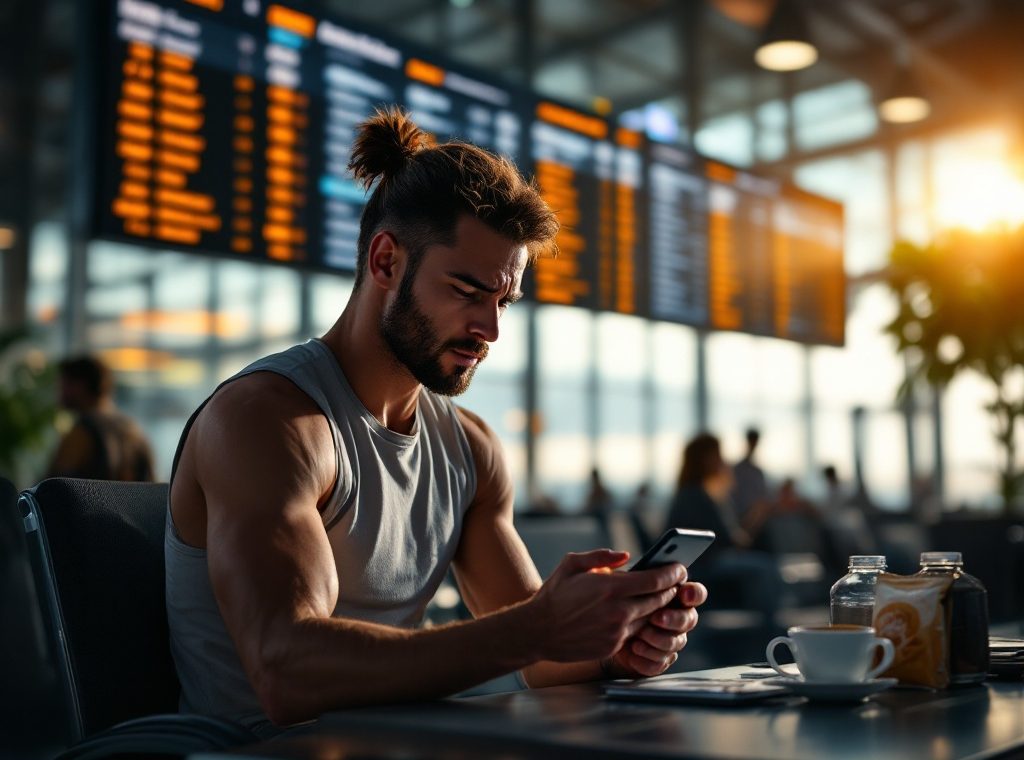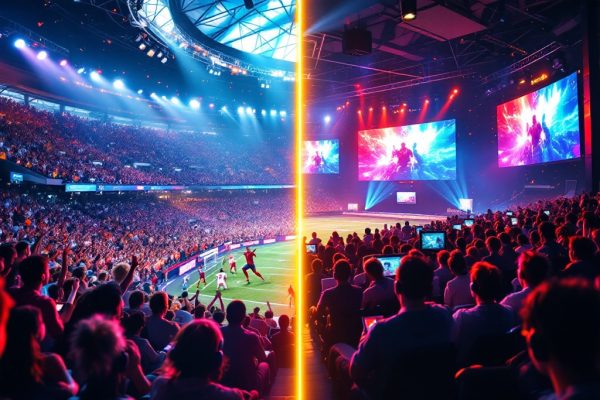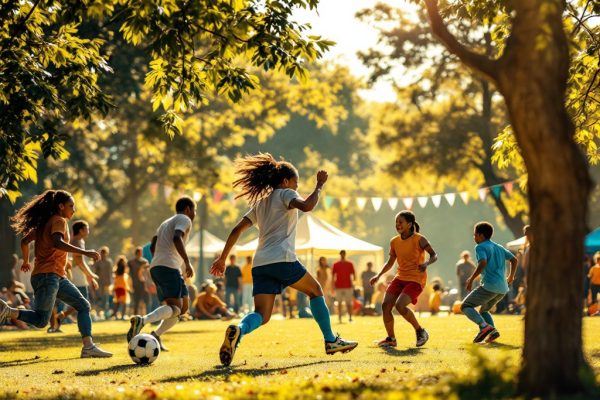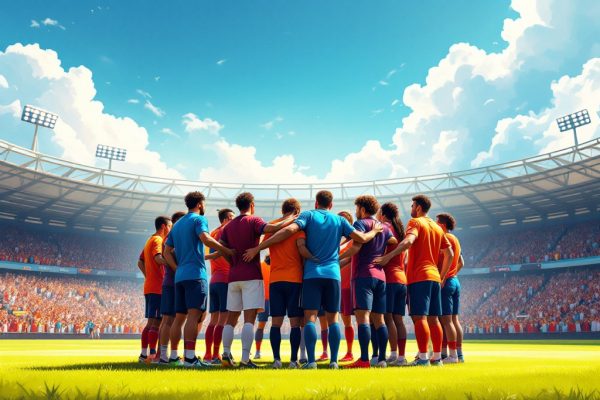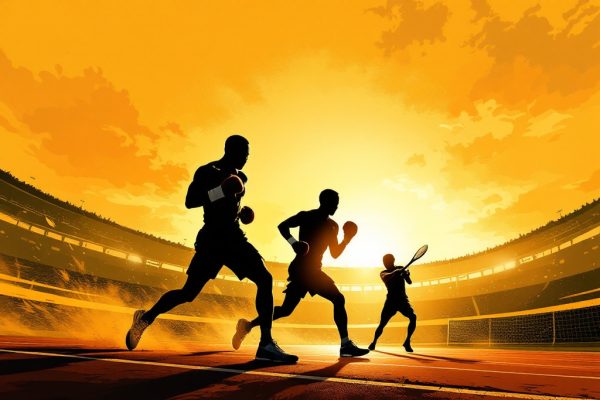How to Handle Jet Lag Before a Major Sporting Event
Do you dread the impact of jet lag on your athletic performance? Crossing time zones can disrupt sleep, impacting mood, focus, and even coordination. This article reveals how jet lag diminishes physical and mental abilities, hindering athletes’ competitive readiness. Discover practical strategies, from hydration and nutrition to light exposure and sleep management techniques, to minimize jet lag’s effects and maintain peak performance. Learn how to conquer jet lag and dominate your next competition, no matter where in the world it takes you.
Important information
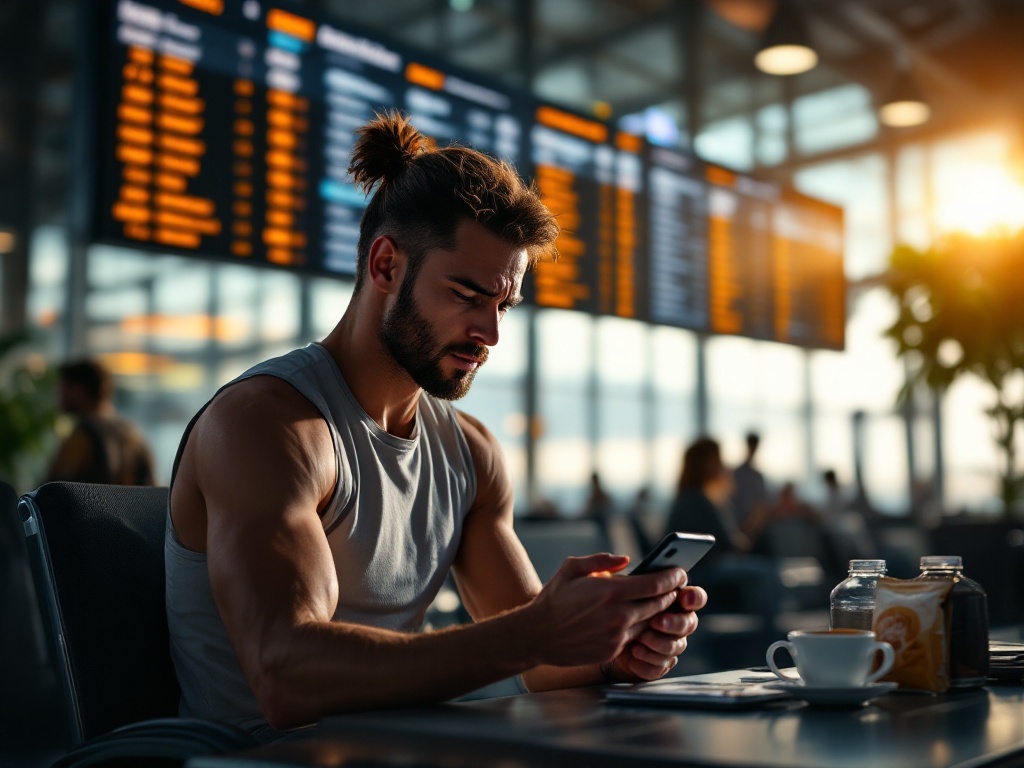
- Jet lag, a temporary sleep disorder, arises from misalignment between the body’s internal clock and a new time zone.
- Adjusting to a new time zone usually takes a few days. Athletes can lessen jet lag’s effects through strategic travel timing, light exposure management, hydration, and nutrition.
- Gradually shifting sleep and meal times towards the destination’s schedule before travel helps acclimatize the body clock.
- Staying hydrated, consuming protein and complex carbohydrates, and avoiding caffeine and alcohol, especially during travel, are crucial for minimizing jet lag’s impact and maintaining optimal performance.
- Light therapy, particularly morning light for eastward travel and evening light for westward travel, can help reset the internal clock and combat jet lag.
Understanding Jet Lag and Its Impact on Athletes
Jet lag is a temporary sleep disorder that occurs when your body’s internal clock is misaligned with a new time zone after crossing multiple time zones. This misalignment can significantly impact athletes, affecting their mood, cognitive function, and athletic performance. Common symptoms include fatigue, poor concentration, and impaired coordination, all of which hinder an athlete’s competitive readiness. Fortunately, adjusting to a new time zone typically takes only a few days. Athletes can mitigate the effects of jet lag by strategically timing their travel and managing light exposure to reset their internal clocks. Proper hydration and nutrition also play a crucial role in minimizing these effects, helping athletes maintain peak performance.
Effects on Cognitive and Physical Performance
Traveling across time zones can significantly impact your physical and mental performance. Jet lag not only affects cognitive functions such as alertness, focus, and recall, but it also diminishes physical abilities like strength, stamina, and reaction time. This makes it crucial for athletes, especially those competing at high levels, to mitigate the effects of jet lag.
Common Symptoms: Insomnia and Daytime Sleepiness
Jet lag often disrupts sleep, making it difficult to fall asleep and stay asleep. This frequently causes excessive daytime sleepiness, especially when crossing multiple time zones. The more time zones crossed, the worse the symptoms become.
Importance of Sleep and Hydration for Athletes
Sleep is essential for athletic performance, impacting recovery, mental sharpness, and overall output. Quality sleep restores energy, improves focus, and enhances coordination.
- Consistent sleep schedules and pre-travel routines minimize sleep disruptions on the road.
- A relaxing bedtime routine significantly improves sleep quality.
- Using tools like eye masks and earplugs can block out distractions and promote better sleep while traveling.
Hydration, especially when traveling across time zones, is equally crucial. Proper hydration minimizes jet lag and maintains peak physical condition, while dehydration worsens fatigue and hinders recovery. Hydration not only supports overall well-being but also lessens the cognitive impact of jet lag.
- Drinking water and electrolyte-rich fluids regulates essential bodily functions and combats dehydration.
- Avoiding dehydrating beverages like alcohol and caffeine, especially during travel, maintains optimal hydration and minimizes the impact of jet lag.
By prioritizing both sleep and hydration, athletes can effectively adapt to new time zones and perform at their best. Strategies include drinking plenty of water, limiting caffeine and alcohol, and maintaining a consistent sleep schedule to manage jet lag and ensure peak performance.
Protecting Sleep Prior to and During Travel
Traveling athletes often find that jet lag hinders their performance. Sleep banking, getting extra sleep before traveling, helps lessen jet lag’s effects. Gradually shifting your sleep schedule towards your destination’s time zone also eases the transition. Using sleep masks and earplugs can significantly improve your in-flight sleep quality.
Hydration Strategies to Reduce Jet Lag Effects
Combat jet lag by staying well-hydrated. Dehydration intensifies fatigue and mental fog, so drink plenty of water before, during, and after your flight. This is crucial for athletes, as proper hydration maximizes energy and performance. Avoid dehydrating beverages like alcohol and caffeine, especially while traveling. This supports essential bodily functions and speeds recovery. Prioritizing water over these drinks will significantly improve your overall well-being.
Strategies for Handling Jet Lag Before a Major Sporting Event
Combatting jet lag can be tricky, but here’s how to minimize its effects:
Pre-flight Adjustments
Before your trip, gradually shift your sleep and meal times towards your destination’s schedule. If traveling east, try going to bed an hour earlier each night leading up to your departure.
Melatonin and Sleep Aids
Melatonin supplements can help regulate your sleep cycle. Consult your doctor about the appropriate dosage. Sleeping pills may offer short-term relief, but discuss potential side effects with your physician beforehand.
Light Therapy and Natural Remedies
Bright light therapy can effectively reset your body’s internal clock. Natural remedies like chamomile tea can also promote relaxation and better sleep, proving especially helpful when combating jet lag.
Behavioral Strategies: Gradual Shift of Sleep and Eating Schedules
Combat jet lag by gradually adjusting your sleep and meal schedule before your trip to help your body clock acclimate to the new time zone. This proactive approach, supported by research in the Journal of Clinical Sleep Medicine, has proven effective. The study showed that athletes who shifted their routines before international events experienced improved sleep quality and reduced fatigue. Therefore, pre-trip planning can significantly ease your transition to a new time zone.
Pharmacological Strategies: Role of Melatonin and Short-Acting Sleeping Pills
Melatonin can alleviate jet lag by regulating your sleep cycle. Alternatively, short-acting sleeping pills can help you fall asleep after arriving at your destination. Consult your doctor before using any sleep aids.
Nonpharmacological Strategies: Bright Light Therapy and Natural Remedies
Bright light therapy, using timed exposure to intense light, can shift your body’s natural sleep-wake cycle, combating jet lag. Natural remedies also offer relief. Before your trip, gradually adjust your sleep schedule and stay well-hydrated. Some find melatonin supplements beneficial, but consult your doctor before use. Combining these methods can be particularly effective, especially for those who prefer non-medication options.
Use bright light therapy. Timed exposure to intense light can shift your body’s natural sleep-wake cycle, combating jet lag.
Adjust your sleep schedule gradually before your trip.
Stay well-hydrated.
Consider melatonin supplements, but consult your doctor before use.
Light Exposure and Time Zone Adjustment Techniques
Natural light is crucial in regulating our sleep-wake cycle (circadian rhythm). This is especially important for athletes traveling across time zones, as strategic light exposure can speed up their adjustment. Morning light advances the circadian clock, promoting wakefulness. Evening light delays it, inducing sleepiness.
Studies show light can shift this clock by several hours, effectively minimizing jet lag.
For eastward travel, athletes should seek morning light upon arrival to adapt to the new time zone, while avoiding bright light in the evening. For westward travel, athletes benefit from evening light, delaying their body clock, and should avoid morning brightness.
